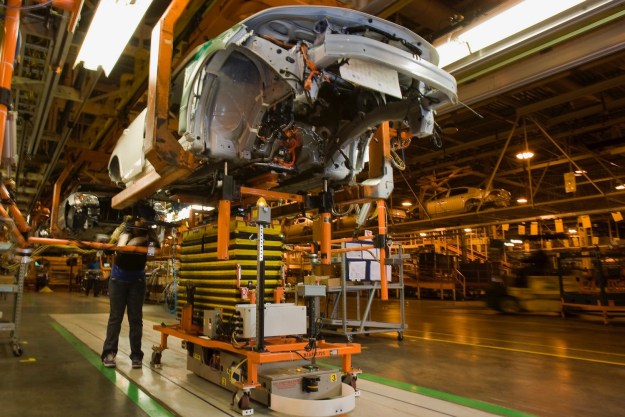
Less than a week after General Motors declared it would cease advertising on Facebook, the American automaker has made yet another bold marketing revelation by announcing it would cease all ads and sponsorship deals for the 2013 Super Bowl. The move comes at a time when the company is trying to curtail advertising dollars after accepting of U.S. government funds to help from going under.
GM has created quite the buzz over its decision to halt ads on the social media site, and the company’s decision to effectively relegate itself to the sidelines for next year’s Super Bowl had already gathered a lot of attention too.
But while GM’s Facebook strategy can be viewed as a shrewd marketing tactic — according to the Wall Street Journal, GM decided to pull its paid ads on Facebook after coming to the conclusion that they do little to influence consumer’s car purchases – the company’s advertising exodus from the perennial gridiron showcase has raised more than a few eyebrows.
Still, if you happen to be one of the 380 thousand who have “liked” GM’s Facebook page you need not worry. Just because GM has decided to discontinue its Facebook advertising campaign that doesn’t mean we won’t be seeing the company on Facebook, it’s just no longer going to use the social platform’s paid advertisement system.
Chris Perry, GM’s vice president of marketing, said last week that while the company has indeed decided to yank its ads from the site, GM will continue to promote its brands and cars on the social media outlet by producing content such as videos, contests and photos designed to engage Facebook users. “Facebook is still going to be an integral part of our social strategy, no doubt about it,” he said at the Automotive News Marketing Seminar in Los Angeles. “It’s the biggest game out there.”
On the bench
That won’t be the case come next year’s Super Bowl showdown. Of course, with the Super Bowl it’s not that the ad time is ineffective — the power to reach consumers is beyond dispute — but rather the spiraling cost for sponsoring and advertising for the event is what has the number crunchers over at GM concerned about. This year’s Super Bowl saw NBC collect an average of $3.5 million for a 30-second ad spot , and Les Moonves, CBS’s chief executive, recently stated he thought CBS’s 2013 Super Bowl broadcast should collect even more — about $4 million a pop. Clearly GM isn’t in agreement over Moonves speculative evaluation, and it’s clearly evident in the company’s unwillingness to advertise at an event it has enjoyed a long history with.
“We understand the reach the Super Bowl provides, but with the significant increase in price, we simply can’t justify the expense,” said Joel Ewanick, the company’s global chief marketing officer, to the Wall Street Journal.
With the upcoming upfront marketplace – where networks and advertisers negotiate over commercial time for the coming TV season — GM’s surprising Super Bowl announcement may not be as out of left field as initially perceived. By not participating in next year’s Super Bowl advertisement blitz GM has certainly struck an aggressive stance over future marketing endeavors. After all, GM does have a cool $10 million to spare after pulling its Facebook ads. Though, it could prove a risky move considering the host of new vehicles and models penciled in for next year.
Still spending
Interestingly, while GM is busy pulling ads and consolidating its advertising agencies, the company’s overall marketing expenditure isn’t dropping in a significant way. Last year GM spent approximately $1.78 billion on traditional media and online advertising according to Kantar media. That figure only accounts for a 16.1-percent decrease from the $2.13 billion it spent in 2010. When you taking into account GM’s massive advertising budget $13 and $14 million on Facebook and Super Bowl adds respectively hardly breaks the bank.
Regardless of its marketing maneuvers, GM won’t actually be spending less on advertising going forward, a company spokesman said. “Our overall spending will remain flat compared to last year,” said spokesman Tom E. Henderson. “As we’ve said all along, we’re continually reevaluating our spending and will maintain a strong presence in all mediums.”
Whether GM’s Super Bowl absence proves detrimental to the Detroit-based automaker remains to be seen. In the meantime the company will channel its advertising dollars into other equally expensive avenues. It’s being reported that GM is in the midst of negotiating a deal for its trucks to appear in the upcoming remake of Dallas set to air on TNT as well as the sole automotive sponsor for the third season of CBS’ “Hawaii Five-0.”
Editors' Recommendations
- GM to cut funding for beleaguered driverless startup Cruise, report claims
- GM unveils more advanced version of its Super Cruise driver-assist system
- The best trucks
- It’s the end of the road for GM carsharing service Maven
- GM’s modular Ultium platform will be building block of its future electric cars


